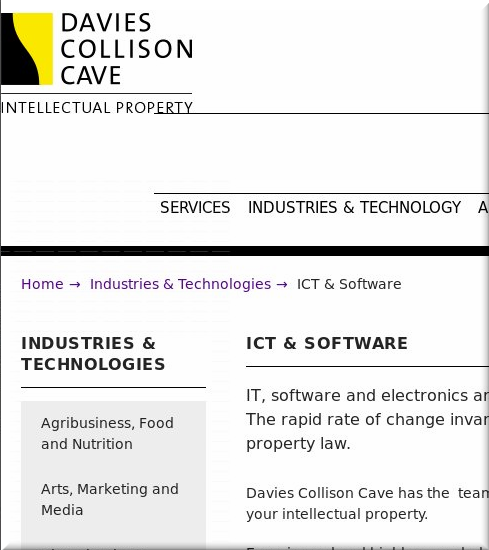

EARLIER this month we saw the Australian Productivity Commission recommending the elimination of software patents [1, 2]. This was an important wake-up call not only to Australians but to governments all over the world, especially governments that write laws for the public interest, not for giant corporations (recall the Indian kerkuffle on this matter).
"This was an important wake-up call not only to Australians but to governments all over the world..."According to the financial (interests) media in Australia, the "WTO chief economist challenges Productivity Commission view on IP" because, as one must remember, WTO is a patents (or ‘IP’) maximalist. Remember who WTO truly represents. It's like those same interest groups that are pushing for TPP, TTIP and their south-Pacific equivalents/complements.
The European Commission, facing the likes of the Productivity Commission, is now pressured "to ban patents on seeds", which are still being granted at the EPO. "Tomorrow," said an announcement, "a symposium on patents and plant breeders' rights will be hosted by the Dutch Minister for Agriculture."
Well, it makes sense to do so. Who benefits from patents on seeds? We covered this subject before.
"It's like those same interest groups that are pushing for TPP, TTIP and their south-Pacific equivalents/complements."Either way, patent scope boundaries are imperative. Without them, all we have is another USPTO and SIPO (China's). They are both notorious for low patent quality.
The other day, writing in patent lawyers' media, Spruson & Ferguson wrote about the Australian Productivity Commission report as follows:
Reforming the patentability of business methods and software inventions
Business methods have been defined as a method of operating any aspect of an economic enterprise, including ‘trading, transacting, finance, resource management, marketing and customer service’16. The Commission found that Business Methods and Software patents reward low– (or even no–) value innovations, and therefore, on balance, it is unlikely that granting patents in the area of Business Methods and Software increases the welfare of the community. While recommendations with regards to changes to the inventive step threshold for standard patents, and dispensing with innovation patents, may ‘knock out’ a large share of Business Methods and Software inventions, the Commission still considers that there is value in making clear that Business Methods and Software should not be considered patentable subject matters.17
Draft Recommendation 8.1 suggests that the Australian patent system should exclude Business Methods and Software from patent protection, as was done in a number of other countries.18 More particularly, it is recommended that section 18 of the Patents Act 1990 (Cth) be amended to explicitly exclude Business Methods and Software from being patentable subject matter. According to the Commission, amending the Patents Act 1990 (Cth) as recommended would minimise the ongoing legal uncertainty, and bring Australia into alignment with the approaches taken in other jurisdictions without impinging on international obligations.
A contrasting view is that, even if there is no case for patenting Business Methods and Software, it is not necessary to explicitly exclude Business Methods and Software from being patentable subject matter. The patentability of Business Methods and Software in Australia has already drastically been restricted by the courts, for example by the Commissioner of Patents v RPL Central Pty Ltd [2015] FCAFC 177 decision, by qualifying what constitutes a manner of manufacture within the meaning of section 6 of the Statute of Monopolies (i.e. section 18(1)(a)). Presently, business system inventions that are not within a ‘field of technology’ are not patentable. Accordingly, since that decision Business Methods and Software inventions generally do not meet the “manner of manufacture” criteria of patentability.
If patents for software are important to your business, then this message is also important for you.
The Productivity Commission has released a draft report which it intends to make final. It includes a recommendation that the Australian Patents Act be amended to explicitly exclude software from being patentable.
The Commission believes that software patents do not encourage new, valuable innovation. We suggest you tell them the truth.
Written submissions in reply to the draft can be made here by 3 June 2016.
It is time our Government heard from Australian innovators.